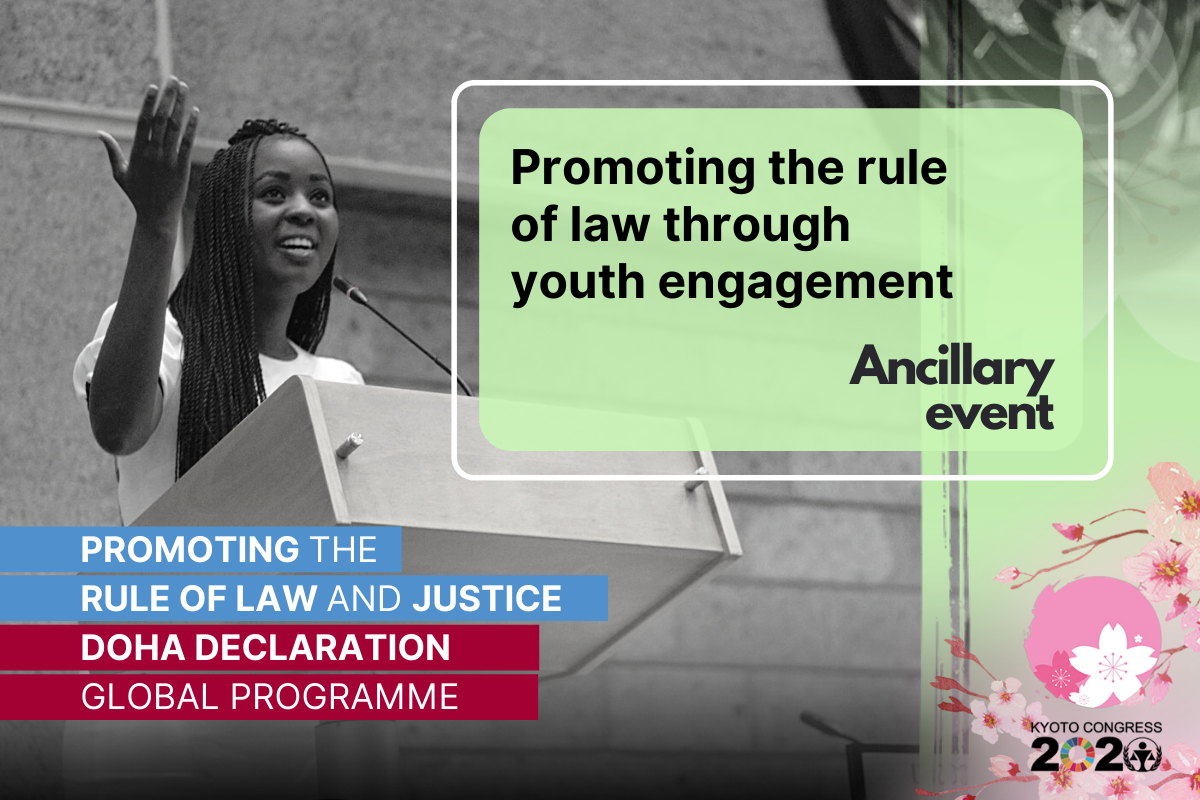Promoting the rule of law through youth engagement

14th UN Crime Congress Ancillary Event
8 March 2021 – Since its creation, UNODC’s Education for Justice (E4J) initiative has catered to all levels of formal education, creating tools and resources to teach at the primary, secondary and tertiary levels in a variety of ways. At the core of this teaching material is the promotion of a culture of lawfulness, with a focus on giving the next generation the information and the mindset to better understand and address problems that can undermine the rule of law, and consequently undermine peace in their communities.
Engaging youth begins with teaching them core values that can form the base for a solid moral and ethical compass, and that can drive them to engage in their communities and contribute to making them safer and better. At the primary level, E4J helps disseminate values such as acceptance, integrity, respect and fairness. At the secondary level, practical and interactive educational material helps form a basic understanding of factors around crime prevention, criminal justice and the rule of law, the core concepts of UNODC mandated areas.
Today, at the 14th Crime Congress in Kyoto, E4J hosted an Ancillary Event on the theme of promoting the rule of law through youth engagement. Joining UNODC experts to discuss the many facets of possible engagement and empowerment were Lisa Martin, Executive Director of MUN Impact; Rahmatullah Hamdard, founder of the NGO Hope for Education and Leadership in Afghanistan (HELA); Aira Beatriz Cardoso, Vice-Director of the Institute of Science and Technology ‘Leva Ciência’ in Brazil; Kuzdai Mukaratirwa, from UNODC’s East Africa Regional Youth Programme; and Maria Theresa Llorente, Youth Goodwill Ambassador from the Ship for Southeast Asian and Japanese Youth Programme.
Catch the full session in the video below and follow all our reporting from the 14th Crime Congress on Twitter and by using #DohaToKyoto.
EVENT VIDEO RECORDING
EVENT SOCIAL MEDIA
|
|
